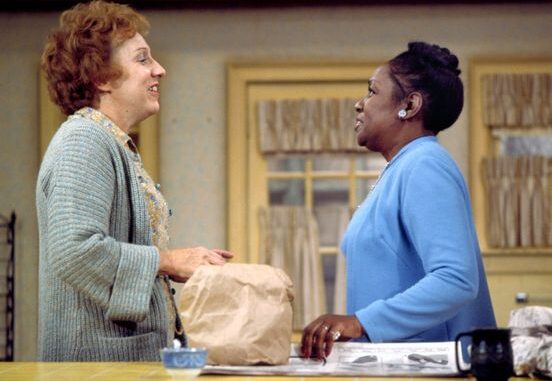
A Deep Dive into All in the Family and Its Cultural Impact
On January 12, 1971, viewers tuning in to the premiere of All in the Family were greeted with an unusual disclaimer from CBS, announcing that the new sitcom would “humorously spotlight our frailties, prejudices, and concerns.” The show opened with the iconic duo of Carroll O’Connor and Jean Stapleton, portraying Archie and Edith Bunker, singing the nostalgic theme song “Those Were the Days.” The lyrics evoked memories of a bygone era, capturing a sense of comfort while hinting at the darker undercurrents of social satire reminiscent of Bertolt Brecht and Kurt Weill’s The Threepenny Opera.
As the episode unfolded, audiences quickly realized they were in for something different. After returning from church, Edith expresses shock at Archie’s foul-mouthed tirade against the minister, setting the stage for the crass, bigoted humor that would become the show’s hallmark. Archie’s diatribes against various groups—whom he refers to with a slew of derogatory terms—paint a portrait of a blue-collar worker steeped in prejudice, a stark contrast to the wholesome, all-American families of earlier television shows like Father Knows Best.
CBS was apprehensive about how audiences would react to Archie, anticipating an avalanche of complaints. However, while only a small fraction of viewers embraced the Bunkers, the show’s creators, Norman Lear and Bud Yorkin, remained undeterred. As the weeks went by, All in the Family tackled controversial topics previously considered taboo for television, including racism, gender roles, and the generational divide, all through the lens of comedy.
Archie’s character resonated with a portion of the American public—his brashness and comedic ineptitude mirrored the anxieties of a nation grappling with rapid social change. This was particularly evident during the turbulent 1970s, a time marked by political upheaval and civil rights struggles. In the midst of these societal shifts, All in the Family became a mirror reflecting both the fears and aspirations of everyday Americans. The show’s audacious storytelling was amplified by powerful performances, particularly by O’Connor, who infused Archie with a complexity that evoked both disdain and empathy.
Despite being a figure of ridicule, Archie’s explosive personality catalyzed vital conversations across the nation, bringing to light the uncomfortable truths about bigotry and prejudice. The show’s biting humor, exemplified in exchanges between Archie and his liberal son-in-law Mike, served as a vehicle for viewers to confront their own biases and societal norms
Archie Bunker was not merely a character; he was a cultural phenomenon, provoking reactions that ranged from outrage to adoration. The show’s ability to navigate sensitive subjects paved the way for more honest dialogues about race, gender, and identity in America. As All in the Family continued to evolve, so did its audience, revealing the show’s capacity to challenge and change perceptions in a society desperately in need of introspection.
By its conclusion, All in the Family had not only entertained but had profoundly influenced the cultural landscape, securing its legacy as a groundbreaking series that dared to tackle the complexities of the human experience with humor and heart
